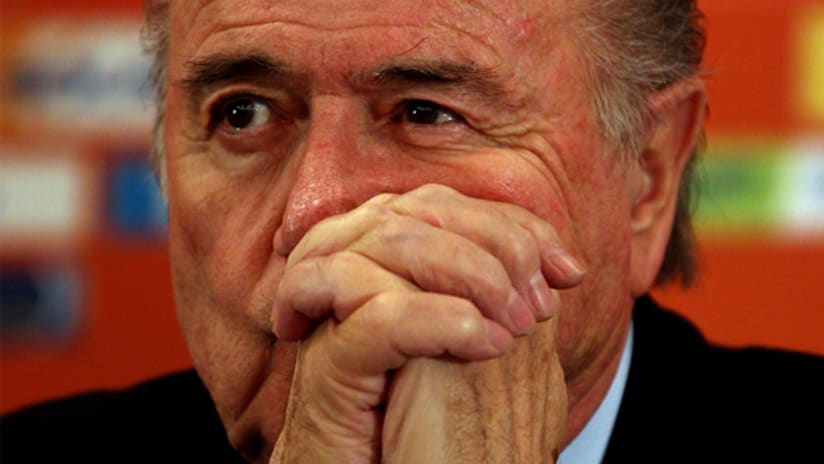ZÜRICH, Switzerland — When the FIFA Executive Committee meets on Thursday to decide the host of the 2022 World Cup, there are some questions its 22 members must ask themselves about the five candidates:
* Do they want to return to a safe bet – the United States – with a chance to make even more money?
* Do they want to break new ground and try a new frontier in Australia?
* Do they want to take a gamble – a big gamble, according to some observers – and play in the Middle Eastern summer heat of Qatar?
* Or do they want to buck precedence and go back to one of two countries – Japan and Korea – that co-hosted the competition only eight years ago?
Let’s start with perhaps the most interesting storyline: Qatar. The country’s representatives have proposed a radical concept in which the entire competition would be held within a 40-mile radius. Nine of the 12 stadiums would have to be built. After the World Cup, modular sections from the stadiums would be disassembled into 22 stadiums for developing soccer nations.
In its evaluation report, FIFA said that having all stadiums located so closely "could represent an operational and logistical challenge." So, it should not be surprising that Qatar was considered a high operational risk by FIFA.
Three bidding countries emanate out of Asia – Japan, Korea and Australia (the Aussies played in Oceania before joining the Asian confederation in 2006), which should split the voting block from that part of the world and make for some unusual alliances.
[inline_node:324243]Japan and Korea certainly have the hands-on experience and the stadiums left over from their successful 2002 competition. But does FIFA want to return to those nations so soon?
And a country that isn't a candidate – China – could very well blow the three bids out of the water. China has expressed interest in the 2026 World Cup and FIFA would love to have the most populous country in the world (1.3 billion and counting) play host, especially after the spectacle of the 2008 Beijing Olympics.
There is no way FIFA would do back-to-back World Cups on the same continent, leaving China out in the cold for at least until 2030. You wonder if FIFA would want to wait that long.
Holding the World Cup in the Asian time zones is also not conducive to the bottom line of European TV, as the games won't be shown in prime time.
"There is a risk of a reduction in TV income and, as a result, commercial revenue from Europe and the Americas," the evaluation report said of Australia. “The income from Asia/Oceania would need to be increased substantially to offset the likelihood of loss of revenue in Europe."
Australia is in a similar position now to when the US bid for the '94 Cup, saying what a great potential it had has a soccer nation and that a World Cup would work wonders. We all have seen the legacy in a thriving, 18-team MLS, which will embark on it 16th season in March.
Will FIFA want to spread the word in Australia or go back to country that already has proven itself?
If it comes down to money - and many times it does – the US would be a decent bet, with a projected attendance of just less than 5 million (which would shatter the record of 3.6 million, set at USA '94). No new stadiums would have to be constructed.
In boosting the USA bid, US Soccer president Sunil Gulati noted that if FIFA wants to follow its rotation of host nations, it would be CONCACAF's turn, as Europe (1998, 2006, 2018), Asia (2002), Africa (2010) and South America (2014) have had their chance.
While that is logical assumption, whether it is to at least 12 members of the Executive Committee – the number needed to elevate a country to host – it remains to be seen.
That's not to say the US bid doesn't have has its weak spots. The Americans haven't gotten all of the required government guarantees, at least not yet, and there is an issue of their ground transportation not up to the level of Korea and Japan, although it's difficult remembering many people griping about taking airplanes in 1994.
Will that be good enough for FIFA?
We should know the answer to that and other questions by 10 am ET on Thursday.
Think you know the game? Test your powers of prediction with MLSsoccer.com's new fantasy game,Pro Soccer Picks. Play NOW!











